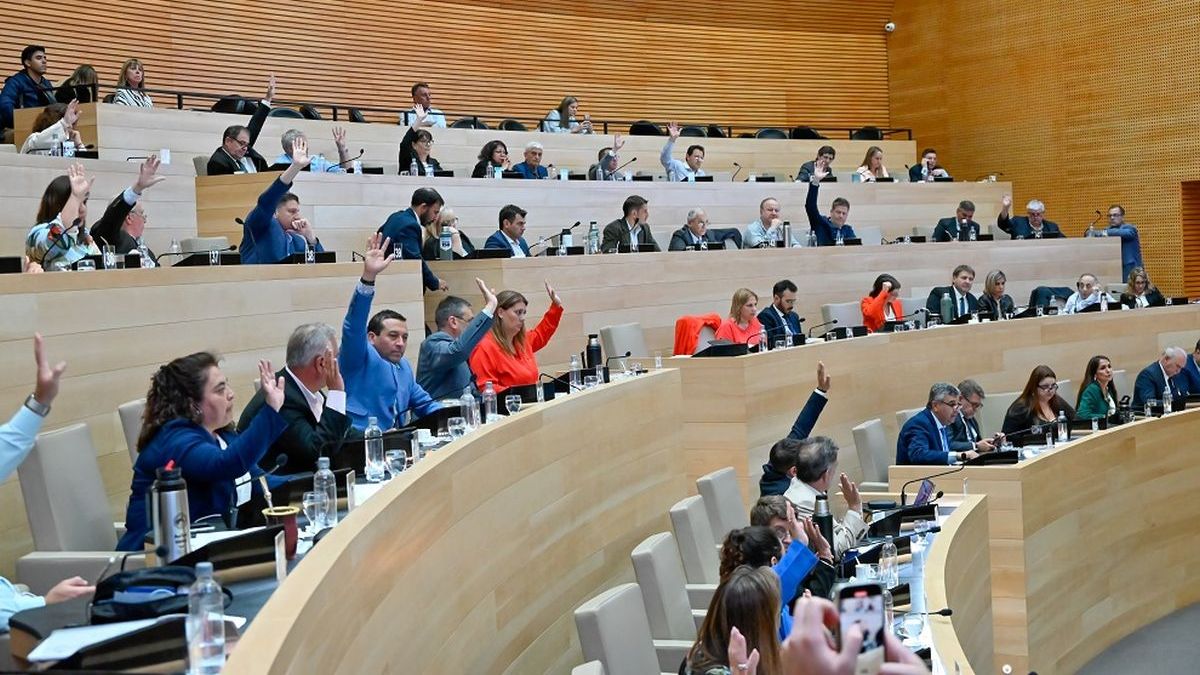The project of Clean Sheet achievement favorable opinion in the Legislature of the province of Cordova and is headed to be approved next Friday at the venue. It will be the last session of the legislative period. The proposal would disqualify candidatures of convicted persons. Days ago, Río Negro sanctioned a similar initiative. In the Nation and City, the projects failed to advance in Parliament.
It is a initiative promoted by UCR legislator Brenda Austin, which merged with another proposal from the ruling party (We do for Córdoba)and which garnered the endorsement of the Constitutional Affairs, Justice and Agreements, and General Legislation commissions.
“If you cannot be a candidate for legislator, you cannot be a minister either. That is, convicted people should not occupy any decision-making position in the State,” justified Austin, who presented the draft Clean Sheet In December 2023, he barely assumed his seat in the Córdoba Legislature.
For the former national deputy of the UCR, “It is essential that in Córdoba we have officials of proven integrity, who do not have records that affect the credibility of public institutions or the ethical commitment to citizens.”
What the Clean File project says in Córdoba
The project of Clean Sheet Cordoban has a greater scope than the one that works in other provinces, since not only disqualifies people who have double convictions from being candidates for elective positions (second instance) but also the incompatibility is to access any position in the public administration, the three powers of the State at the provincial, municipal and party levels.
The Clean Record criterion is established for all intentional crimes with custodial sentences, for the duration of the sentence or until the sentence is revoked. “We are one step away from the fact that in Córdoba those who commit crimes cannot be public officials or candidates. Córdoba’s debt to public ethics is as simple and as obvious as it is old. Hopefully this time it will be”remarked the radical legislator.
In 2017, when he held a seat in the national Congress, Austin promoted the Clean Record initiative after the Supreme Court enabled the candidacy of former president Carlos Menem for national senator when he was serving a sentence for the sale of weapons to Croatia and Ecuador.
The Río Negro Legislature turned the Clean File project into law
The Legislature of Black River approved this Wednesday the bill of Clean Sheet sent by the governor Alberto Weretilneck, preventing leaders with convictions for intentional crimes they can be candidates for national and provincial positions, as well as occupy party positions.
Within the framework of the extraordinary sessions, the local parliament gave the green light to the official initiative with 36 positive votes and five negative ones, and it was highlighted as a “a real shock of confidence” por part of the administration of Together We Are Río Negro (JSRN).
The new law contemplates that no person with a double conviction for intentional crimes for both provincial elective candidates and party positions. The norm also includes similar restrictions in the case of officials of the Provincial Executive Branch.
Rejection of Clean Record in City
The last ordinary session began around 9 in the morning, with a diverse universe of projects among which are the Mother Law (in tandem with the Tariff Law) and the Urban Planning Codeamong the main texts. Throughout the day, it wasTwo intermediate quarters were convened with the aim of bringing together positions to approve the spending guideline.
As an advance of the Budget, Clean Record and the University Ticket. The electoral regulations garnered 39 of the 40 required affirmative votes, which is why it was rejected. Free travel, on the other hand, had 53 wishes. The libertarians, alone, did not accompany.
Within the broad agenda of the date, The Legislature tried and rejected the Clean File project. The text did not achieve the consensus necessary for its approval. Being an electoral initiative, it required a special majority of 40 votes. The final result closed in 39 affirmative votes and 21 negative ones.
Source: Ambito




